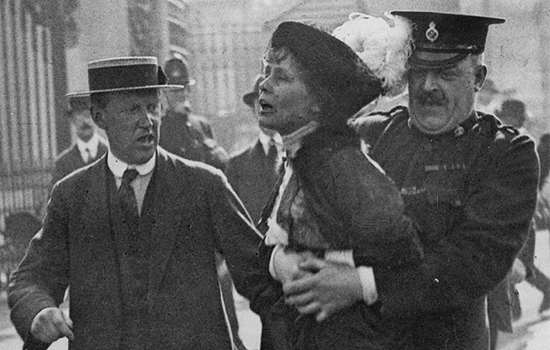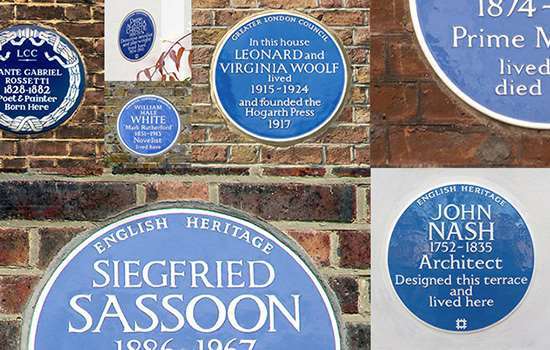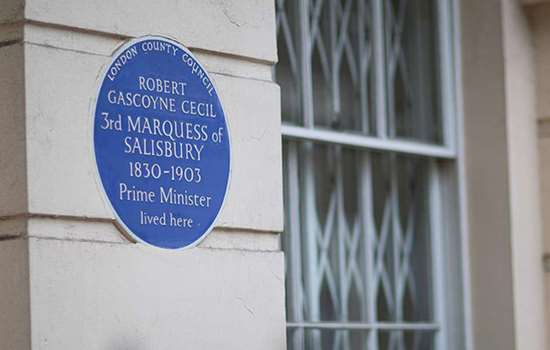SALAM, Abdus (1926–1996)
Plaque erected in 2020 by English Heritage at 8 Campion Road, Putney, SW15 6NW, London Borough of Wandsworth
All images © English Heritage
Profession
Physicist
Category
Science
Inscription
ABDUS SALAM 1926-1996 Physicist, Nobel Laureate and champion of science in developing countries lived here
Material
Ceramic
The physicist Abdus Salam is considered one of the greatest scientists of the 20th century. He was the first Pakistani to win a Nobel Prize and the first Muslim to win one in the sciences. He is commemorated with a blue plaque in Putney, where he lived for almost 40 years.
PHYSICS RESEARCH
Born in a region of western Punjab that later became Pakistan, Abdus Salam belonged to the minority Islamic community, the Ahmadiyya, whose faith he adhered to throughout his life. His father recognised Salam’s academic potential early on, and made sure he had every educational opportunity possible. With a scholarship from the Punjab government he was able to take up a place at St John’s College, Cambridge in 1946, and went on to gain his PhD in theoretical physics in 1952. He returned to teach in Pakistan, but the lack of research culture and the growing violence toward Ahmadi Muslims encouraged him to return to England, where in 1957 he was appointed Professor of Applied Mathematics at Imperial College, London – the same year he bought and moved into his Putney home.
Salam went on to turn Imperial’s new physics department into one of the most dynamic research groups in British theoretical physics. In 1968 he first presented the theory which shows how the electromagnetic and weak forces may be considered manifestations of a single more fundamental force, and it was for this work that he was later awarded the Nobel Prize for Physics in 1979, along with his fellow researchers Sheldon Glashow and Steven Weinberg. This work had at its centre a quest to explain the origins of the universe, and it paved the way for the discovery of the Higgs-Boson particle – the ‘God particle’ – in 2012.
Salam was, for 13 years, the Scientific Advisor to the President of Pakistan. During this time, he helped Pakistan develop its nuclear capacity for peaceful purposes, but under President Zulfikar Ali Bhutto progress was made towards the development of a nuclear bomb. It’s unclear how far Salam was personally involved in this, but later in life he was a proponent of nuclear disarmament. In 1974 President Zulfikar Ali Bhutto declared the Ahmadi people to be non-Muslims and Salam resigned from his advisory post, growing a beard and assuming the forename Muhammad to affirm his Muslim identity.
AMBASSADOR FOR DEVELOPING COUNTRIES
Alongside his research, Salam’s other life-long passion was his campaign to redress the isolation and lack of support faced by scientists in poor countries. It was, in his words, a ‘battle against the cruel imbalance of global wealth and resources’. Despite some opposition from his peers, Salam was instrumental in setting up the International Centre for Theoretical Physics (ICPT), which gained approval in 1963 and was set up in Trieste, Italy, with Salam as its director. He drafted in cutting-edge researchers and set up a membership scheme which enabled scientists from developing countries to visit the Centre for up to three months at a time, provided they also continued to work in their countries. The Centre thus became a place for the exchange of ideas between East and West, and it acted as a model for other ventures, such as the International Centre for High Technology and New Materials.
Salam was highly visible as an advocate of science in developing nations. He was chair of the UNESCO advisory panel on science, technology, and society in 1981 and he was disappointed not to become the head of UNESCO in 1987, when Pakistan did not support his nomination.
LIFE IN PUTNEY
In 1957 Abdus Salam bought a semi-detached house on a quiet residential street in Putney, and it remained his London base until the end of his life. The documentary film SALAM - The First ****** Nobel Laureate (2018), shows the room there where Abdus Salam worked, preserved much as he left it, with his books (including his favourite PG Wodehouse novels), his incense stand, his record player, and the easy chair where he sat cross-legged in a woolly hat to think and write, while listening to long-playing records of Koranic verses and an eclectic variety of music by composers such as Strauss or Gilbert and Sullivan.
He lived at the house with his wife, Hafiza, their daughters Aziza, Asifa, Bushra, and their son Ahmad. In 1962 at an anti-nuclear-proliferation meeting Salam met Louise Johnson, then a physics undergraduate at University College, London, who went on to become an eminent professor of Molecular Biophysics and was later made a Dame. The pair married in a Muslim wedding in London in 1968 – a concurrent second marriage, allowed by Islam. Their son, Umar, was born in 1974 and their daughter, Sayyeda, in 1982. Salam, when not on his frequent visits elsewhere, divided his time between Oxford, Trieste, and London.
He died in Oxford on 21 November 1996, and was buried alongside his parents in an Ahmadi cemetery in his hometown in Pakistan. The inscription, ‘Abdus Salam, the First Muslim Nobel Laureate’, was soon defaced – the word ‘Muslim’ was obliterated (and remains so).


